How To Diversify Your Diet Without Symptoms
Next lesson
How the Brain Is Impacted by Your Gut with Kiran Krishnan of Microbiome Labs and Shivan Sarna
CancelI just sat down for a quick chat with the amazing founder of Microbiome Labs and microbiologist, Kiran Krishnan to discuss a NEW digestive enzymes specifically for people with IBS or SIBO, or anyone following a low-FODMAP diet.
Watch the interview or keep reading below to learn more...
Have you tried a low-FODMAP diet and found it helped your IBS (Irritable Bowel Syndrome), SIBO (Small Intestine Bacterial Overgrowth), or digestive symptoms like gas, bloating, constipation, diarrhea, or pain?
If you're one of the millions of people who the low-FODMAP approach has worked for - I am so happy for you.
For me personally, becoming aware of FODMAPs was life-changing.
But there is a "dark side" to the low-FODMAP diet, and that's what I want to talk about today.
But don't worry - if you're wondering what the heck a low-FODMAP diet even is, I'll explain all that too!
What Is the Low-FODMAP Diet?
To oversimplify it, the Low-FODMAP diet was created by Dr. Sue Shepherd and Dr. Gibson from Monash University in Australia as a treatment for Irritable Bowel Syndrome. It works by restricting certain types of carbohydrates: Fermentable Oligo-, Di-, Mono-saccharides And Polyols (FODMAPs). These carbohydrates are difficult to digest and can lead to symptoms like gas, pain, bloating, diarrhea, and constipation.
Common high-FODMAP foods include things like cow's milk, asparagus, broccoli, apples, wheat, garlic, onions, avocados, and beans. You can find lots of lists of high and low-FODMAP foods online or use apps like the Monash University Low FODMAP Diet app. On the low-FODMAP diet, you restrict high-FODMAP foods and replace them with low-FODMAP alternatives.
If you're sensitive to FODMAPs, cutting them out can provide immediate relief from gas, bloating, constipation, diarrhea, and pain. It's pretty amazing!
The Problem With The Low-FODMAP Diet
While the Low-FODMAP diet is undeniably amazing for controlling digestive symptoms, there are a couple (big) downsides:
#1 It's very restrictive
There are many, many foods high in FODMAPs - especially many healthy foods like most fruits and veggies. Cutting out all high-FODMAP foods is challenging both physically and mentally. You might come to dread eating, or even develop negative coping behaviors like binge eating from all the restriction. It's a serious problem.
#2 It's NOT a long-term solution
Ask any expert and they'll tell you the same thing: the Low-FODMAP Diet is meant to be a short-term intervention, not a long-term lifestyle.
Here's what leading SIBO and IBS expert Dr. Mark Pimentel told me about the low-FODMAP diet:
“The low FODMAP diet is unhealthy. Now, some people may not like me saying that. But even those who discovered the low FODMAP diet recognize that you have to have a reintroduction phase because it’s going to hurt people over time potentially.
This was presented at the American College of Gastroenterology, where they showed the people who were sustained on a low FODMAP diet for more than three months started to have measurable nutritional deficiencies. You can’t stay on low FODMAP forever, period.”
Why You Can't Stay Low-FODMAP Long-Term
The reason the low-FODMAP diet becomes dangerous long-term is that the foods that are restricted are some of the most nutritious foods on earth! Fruits, veggies, whole grains, beans... you can potentially miss out on a lot of nutrients by skipping these foods long-term.
And not only are you missing out on the nutrients these foods contain, you're also potentially starving your microbiome. That's because the same things that make high-FODMAP foods difficult to digest is what makes them so healthy - they are high in fiber, the food for the bacteria in your gut. A healthy microbiome requires plenty of fiber-rich(and therefore high-FODMAP) food to survive.
All together, this means that while a Low-FODMAP diet might make you feel better right now, long-term it could be worsening your gut health!
Try This If You're Stuck on a Low-FODMAP Diet
Now you can understand why the low-FODMAP diet can be problematic: cutting out these foods makes you feel better now, but can harm your health long-term.
So, if you're considering trying a low-FODMAP diet, keep this in mind.
But what if you're already "stuck" on a low-FODMAP diet, unable to reintroduce higher-FODMAP foods without painful symptoms?
You might want to try FODMATE.
(And even if you aren't following low-FODMAP, but you feel like EVERYTHING you eat gives you symptoms, this could be a huge help for you!)
FODMATE is a new specially-designed digestive enzyme from Microbiome Labs, the makers of MegaSporeBiotic - one of the most beloved and effective probiotics ever created. This supplement specifically helps cut down on digestive symptoms when foods high in FODMAPs are eaten.
Unlike other digestive enzymes, FODMATE is made specifically for high-FODMAP foods like garlic, onions, and apples. It can help you reintroduce these incredibly healthy foods, without digestive symptoms. Hallelujah!
This is a brand-new supplement with nothing else like it available - if you haven't tried it yet, consider this your sign from the universe.
I hope FODMATE™ helps you reintroduce FODMAPS without symptoms.
Prefer to just listen, we've also included the audio file.
🧾 SHOWNOTES
Get 15% off your ENTIRE Microbiome Labs cart!
Register for an account at 🔗 https://sibosos.com/microbiome-labs
Use patient direct code 🏷️ SIBOSOS
Add everything you want to your cart 🛒
At checkout, use the coupon code 🏷️ NOBLOAT15
⚠️ Coupon available for a limited time!
Watch our FREE videos on YouTube!
👉 https://www.youtube.com/c/SIBOSOS
Join us in the SIBO SOS®️ Facebook Group:
👉 https://www.facebook.com/groups/SIBOSOSVirtualSummit/
// ABOUT
Kiran Krishnan, a microbiologist, has a rich background in research, Kiran noticed that many supplement companies were lacking sufficient clinical data, which inspired him to design trials that were more affordable and fitting for the supplement industry. He then expanded his skill set into product development and formulation for a number of retail supplement companies. Eventually, he was hired to study probiotics and discover what would become the next big probiotic in the industry: Bacillus spores.
Microbiome Labs hopes to encourage other supplement companies to follow suit, thereby raising the bar of the supplement industry as a whole. In 2018, Microbiome Labs attended over 148 conferences, initiated and/or completed 14 clinical trials, and provided key solutions to thousands of practitioners, changing over 344,000 lives… and counting.
Shivan Sarna is the author of Healing SIBO, TV host, and the creator of the SIBO SOS® Summits and Community, the Digestion SOS® documentary series, the Gut & Microbiome Rescue Summit, the Lymphatic Rescue Summit, the Dental-Health Connection Summit, and Chronic Condition Research, a 501(c) 3 non-profit to further research under-funded medical conditions. After a lifetime of struggling with health issues, Shivan made it her mission to demystify her own health struggles - and to share that information with others who were struggling. Her special skill is finding and connecting with the leading expert doctors and connecting those experts with the people who need their help. Her personal mantra is SOS: Save Our Selves, and that's what she has helped thousands of people do!
Fix the real cause of SIBO, IBS, Bloating...
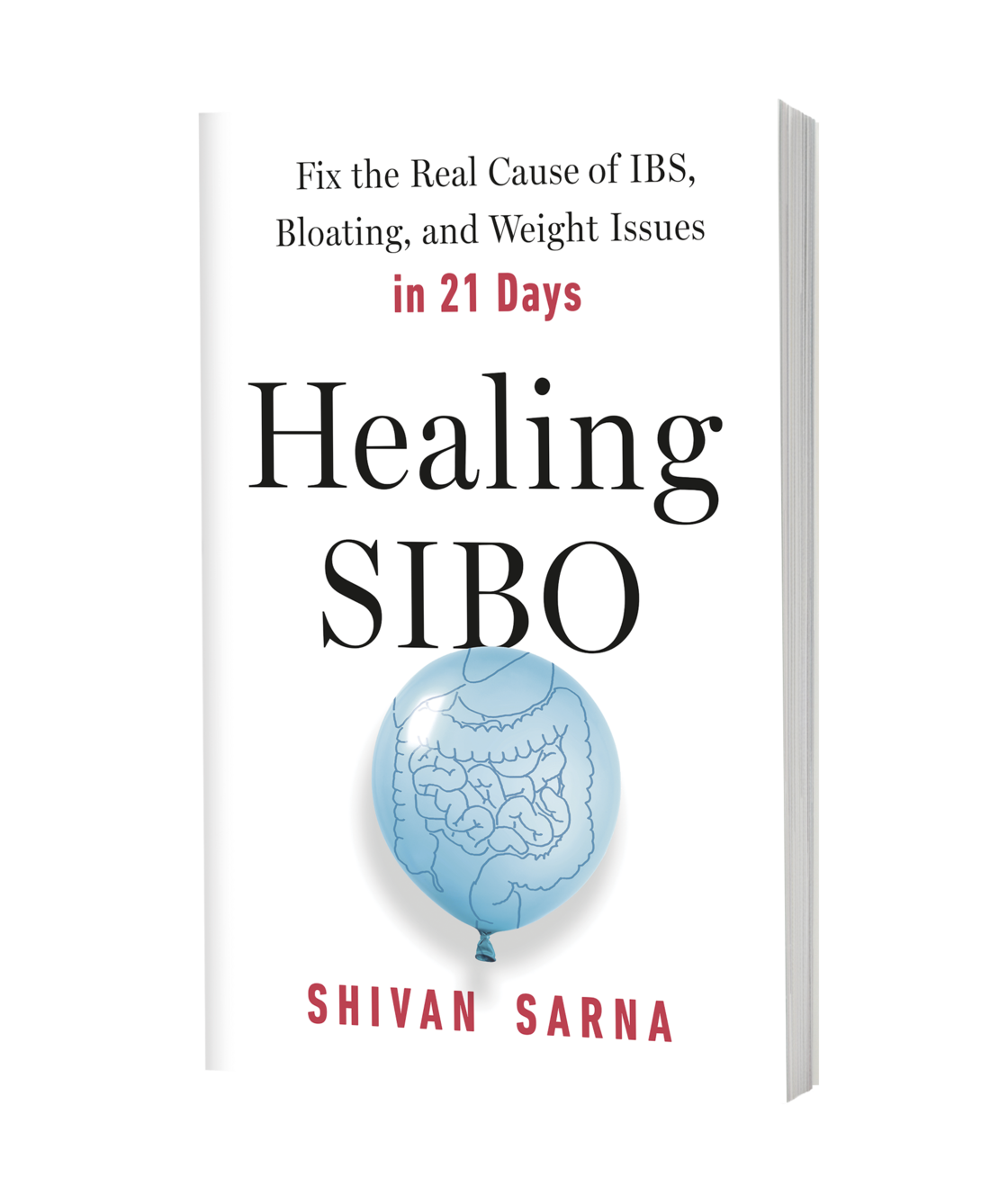 |
BUY THE BOOK |


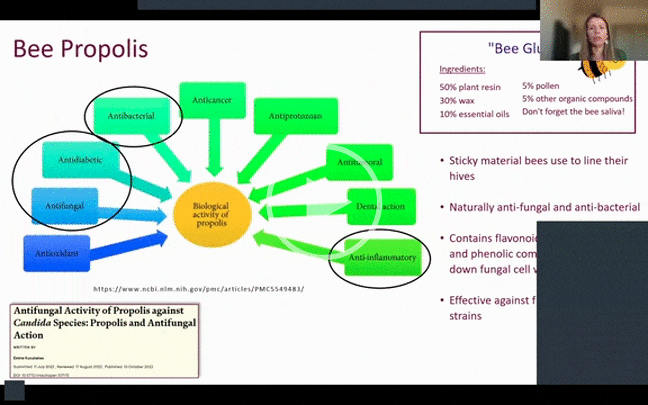
















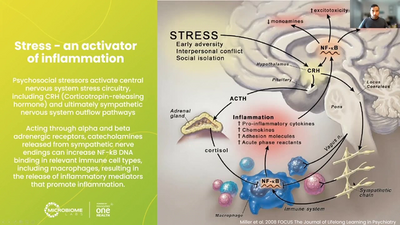


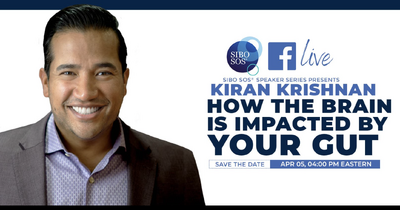

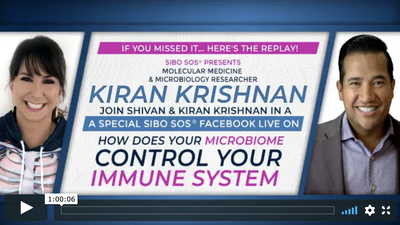



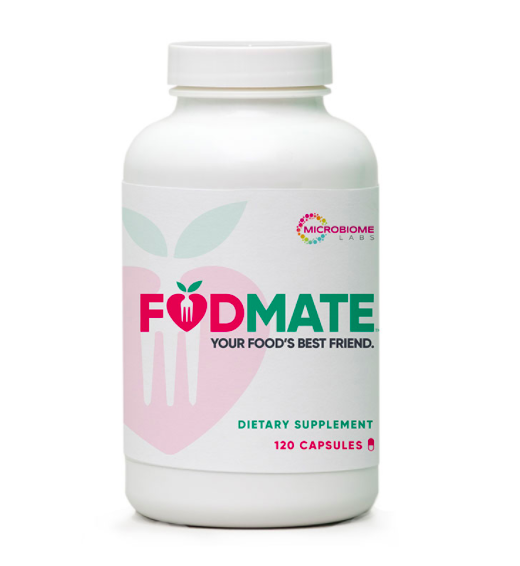
Like you Shivan FODMATE sounds very exciting, are the enzymes animal based or vegetarian ?